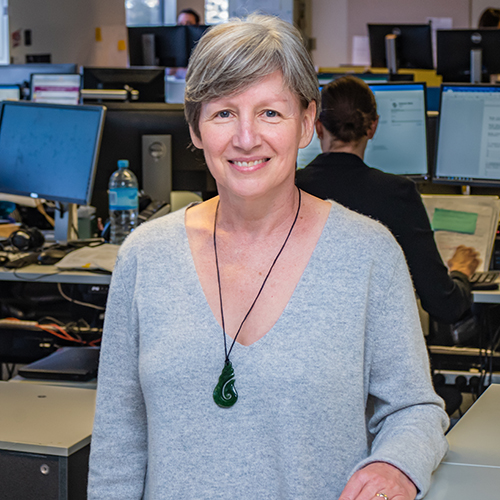
Margaret, who joined Victoria University of Wellington as Vice-Provost (Research) at the end of July, saw an institution “on a very positive trajectory. It had a sense of real vibrancy. There was an openness to change and exploring new directions I found very appealing.”
She also liked the idea of being directly responsible for delivering research again; as much as she loved her chief scientist job and the broader perspective it gave her, “it was more about influencing than delivering”.
Margaret was on secondment to MBIE from the University of Auckland, where she was deputy dean of its Faculty of Engineering. She joined the university in 1989 and her other roles there included three years as associate deputy vice-chancellor, research.
In 2015, Margaret was the first woman to be awarded the Royal Society Te Apārangi’s prestigious Pickering Medal for excellence in technology, for her pioneering research to reduce fluoride emissions from aluminium smelting.
A former professor of chemical and materials engineering at Auckland, with a PhD in chemistry from the University of Western Ontario in her native Canada, she has an impressive track record in external research funding, having secured more than $39 million over the past 11 years as a principal investigator.
Margaret’s vision for research at Victoria University “is encapsulated in the University’s positioning around the global–civic ethos: it’s about excellent research that makes a difference; research that is internationally recognised, in part because it has a particularly New Zealand flavour to it”.
That flavour manifests itself in many ways, she says.
“One is our connectedness. We have access to particular environments and ecosystems, including science and business ecosystems. We also have access to unique databases. And then, really importantly, there is our indigeneity—mātauranga Māori and the distinctive contributions possible through engagement with Māori thinking, Māori researchers, iwi, and Māori enterprises. I see at this University a serious commitment to exploring how that can be done well.”
